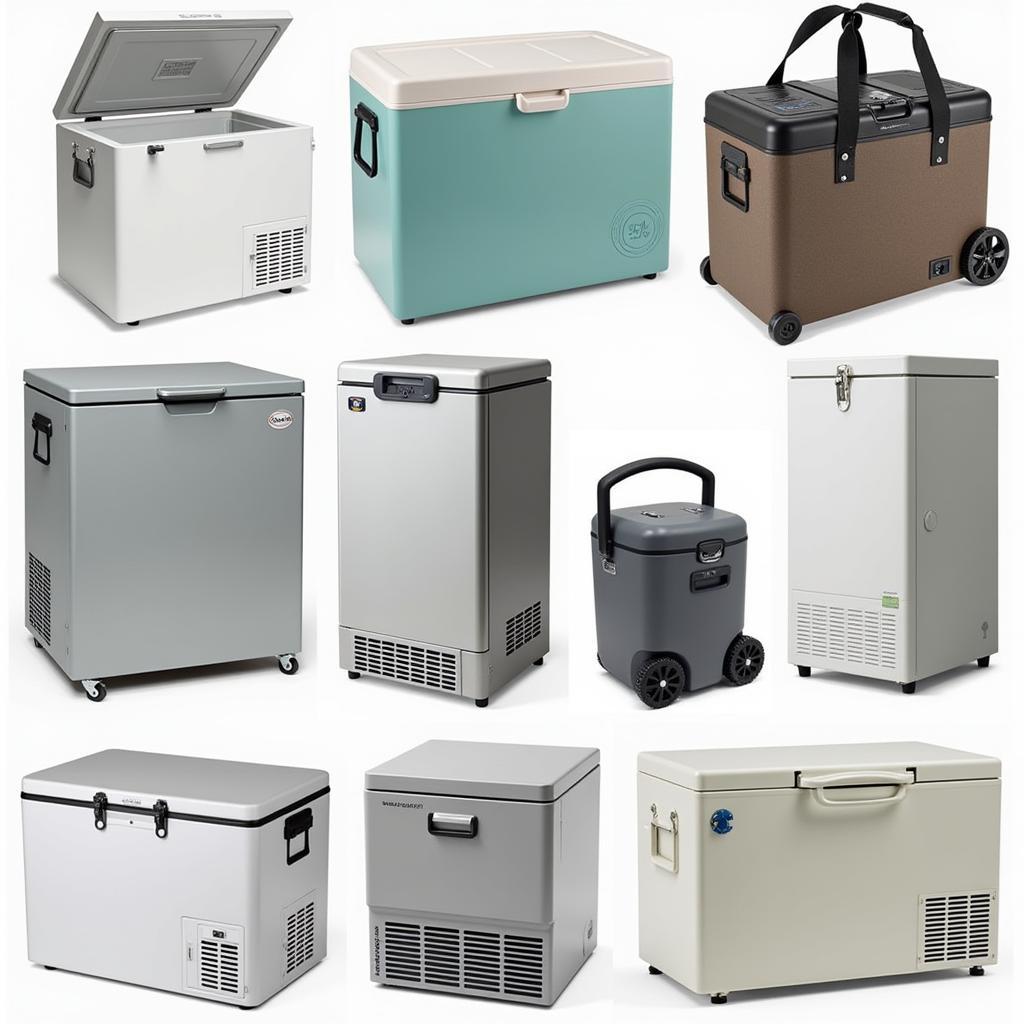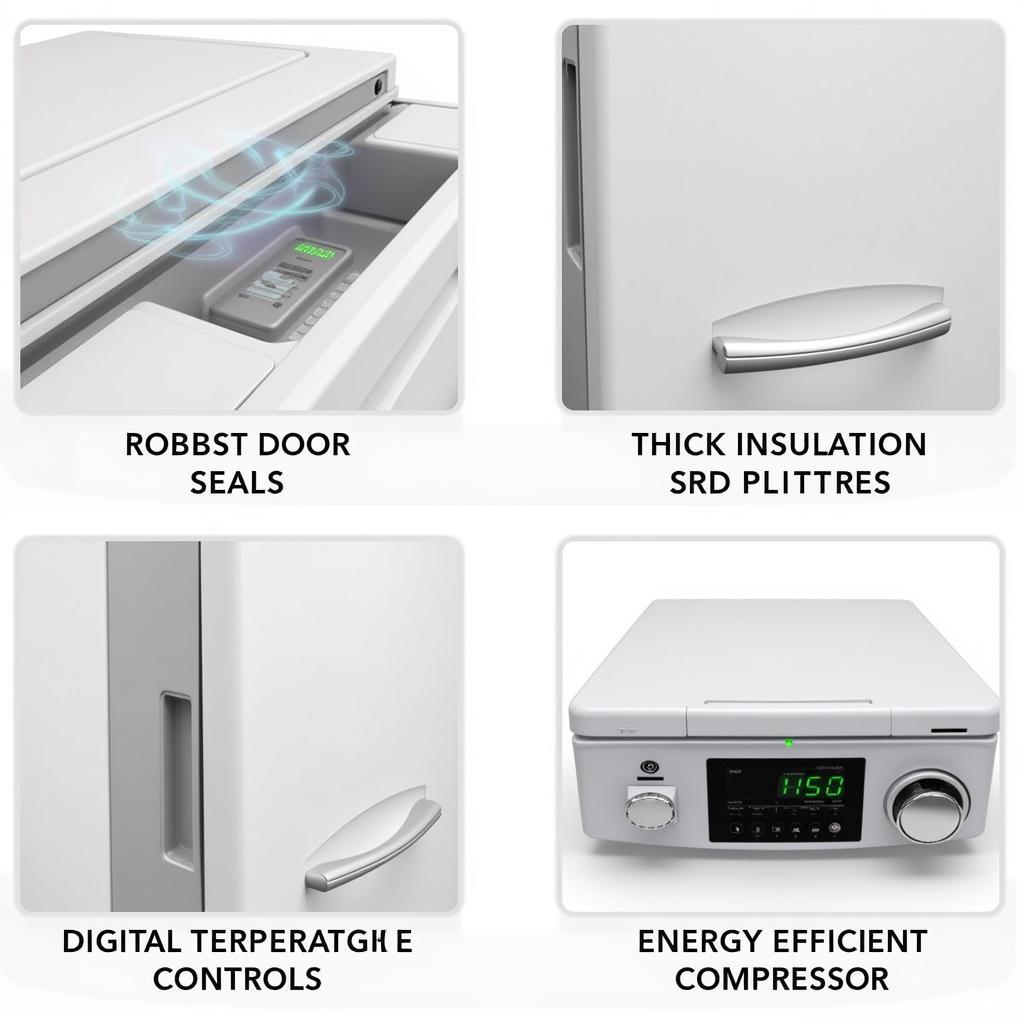An off-grid refrigerator is more than just a place to store your food; it’s a key component of a self-sufficient lifestyle. Whether you’re living off the grid full-time, setting up a remote cabin, or simply preparing for emergencies, selecting the right off-grid refrigerator is a decision that requires careful consideration. Unlike conventional fridges that run on AC power from the grid, off-grid refrigerators are designed to operate independently, typically using DC power from solar panels, generators, or batteries.
 Types of Off-Grid Refrigerators
Types of Off-Grid Refrigerators
Understanding Your Off-Grid Refrigeration Needs
Before diving into the technical specifications, it’s crucial to assess your specific refrigeration needs. Consider the following factors:
-
Capacity: Determine the storage space you need based on your household size, eating habits, and how often you restock. Off-grid fridges come in various sizes, so choose one that fits your lifestyle without being excessively large.
-
Climate: The ambient temperature where you live plays a significant role in refrigerator efficiency. Hot and humid environments demand a more robust cooling system. Look for fridges with features like extra insulation and adjustable temperature controls.
 Essential Features for Off-Grid Refrigerators
Essential Features for Off-Grid Refrigerators
-
Power Source: Your primary energy source dictates the type of fridge you can use. Solar-powered refrigerators are popular for their eco-friendliness, while propane fridges offer versatility. Factor in the wattage and voltage requirements to ensure compatibility with your off-grid power system.
-
Features: Modern off-grid refrigerators come equipped with various features that enhance convenience and efficiency. Consider features like adjustable shelving, interior lighting, frost-free operation, and low-battery alarms to optimize your experience.
Types of Off-Grid Refrigerators
-
Compressor Refrigerators: Similar to conventional refrigerators, these models use a compressor and refrigerant to cool. They offer excellent cooling power and can handle larger capacities, making them suitable for full-time off-grid living.
-
Absorption Refrigerators: Also known as “3-way” fridges, these units rely on a heat-driven chemical process for cooling. They operate silently and have fewer moving parts, making them more reliable in remote locations. Absorption fridges can run on propane, AC electricity, or DC electricity, providing versatility.
-
Thermoelectric Refrigerators: These portable units use the Peltier effect to create a temperature difference, transferring heat from one side to the other. While not as efficient as compressor or absorption models, they are compact, energy-efficient, and ideal for small spaces and occasional use.
Maximizing Efficiency and Performance
Getting the most out of your off-grid refrigerator involves adopting energy-saving practices:
-
Proper Ventilation: Ensure adequate airflow around the refrigerator to prevent overheating.
-
Optimal Temperature Settings: Avoid setting the temperature lower than necessary.
-
Minimize Door Openings: Each time you open the door, warm air enters, forcing the fridge to work harder.
-
Regular Maintenance: Keep the condenser coils clean and check door seals for a tight fit.
Conclusion
Choosing the right off-grid refrigerator is an investment in your self-sufficient lifestyle. By carefully considering your needs, exploring the available options, and implementing energy-saving practices, you can ensure efficient and reliable refrigeration, no matter how far off the grid you venture. Remember to factor in capacity, climate, power source, and desired features to make an informed decision.





